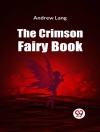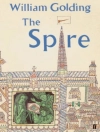Within the pages of ‘Jane Eyre & Wuthering Heights, ‘ readers are immersed in the depths of English literature’s most haunting explorations of passion, identity, and social adversity. The anthology showcases an exquisite blend of gothic romance and psychological depth, as Charlotte Brontë’s introspective heroine Jane Eyre complements the stormy wilderness of Emily Brontë’s Wuthering Heights. Stretching the boundaries of literary convention, these works together scrutinize the human condition through stark landscapes, vibrant characterizations, and richly embroidered prose, offering a tapestry of themes that continue to resonate universally. The Brontë sisters, synonymous with the gothic and romantic literary traditions, lend their unique visions to the anthology, drawing from the tempestuous moors of their upbringing in Haworth. Their narratives are deeply entrenched in the Romantic movement, yet pioneering in their introspective, feminist undertones, challenging societal norms. These narratives are steeped in atmospheric detail and emotional intensity, reflecting the tumult of their personal lives and the broader socio-political upheavals of the 19th century. Combined, their voices forge a powerful discourse on love, morality, and social class. For those seeking a profound literary exploration, this collection is an invaluable resource. It invites readers to delve into two masterworks that encompass a range of human emotions and experiences, offering not only aesthetic pleasure but also significant insights into the complexities of human nature. Through diverse narrative techniques and character studies, this anthology fosters a dialogue that transcends time, allowing an opportunity to engage with these iconic works and the enduring questions they pose about identity, freedom, and belonging.
About the author
Charlotte Brontë, born on April 21, 1816, in Thornton, West Yorkshire, was an English novelist and poet, widely revered for her novel ‘Jane Eyre’ (1847). Brontë was the eldest of the three Brontë sisters who survived into adulthood and whose novels have become classics of English literature. She first published her works, including ‘Jane Eyre’, under the pen name Currer Bell to mask her identity and avoid the prejudices against female writers of the Victorian era. ‘Jane Eyre’, which relates the experiences of its eponymous heroine, including her growth to adulthood and her love for Mr. Rochester, is considered a prime example of the bildungsroman genre, containing elements of social criticism, a strong sense of morality, and gothic mystique. Charlotte had a profound narrative gift; her works are distinguished by their vigorous and intuitive depiction of the inner lives of women, emphasizing their struggles for independent identity. Although ‘Wuthering Heights’ is not a work penned by Charlotte but by her sister Emily Brontë, Charlotte’s preface to the 1850 edition of that novel played a significant role in its reception. Notable for her sharp, original intelligence, the depth of her emotional perception, and the innovative narrative techniques that charactize her prose, Charlotte Brontë remains a towering figure in British literature. She passed away on March 31, 1855, in Haworth, Yorkshire, but her legacy endures in the literary canon and feminist discourse.












